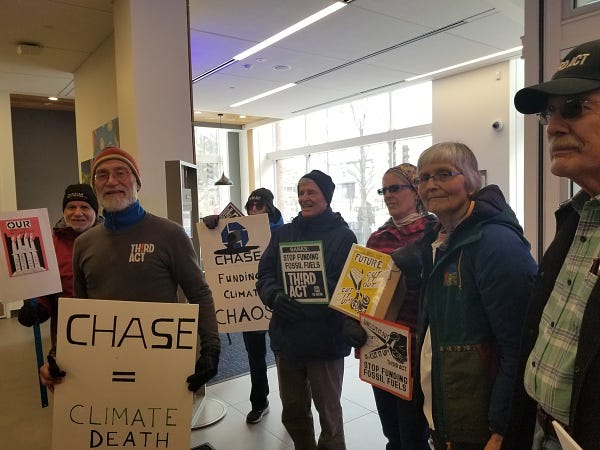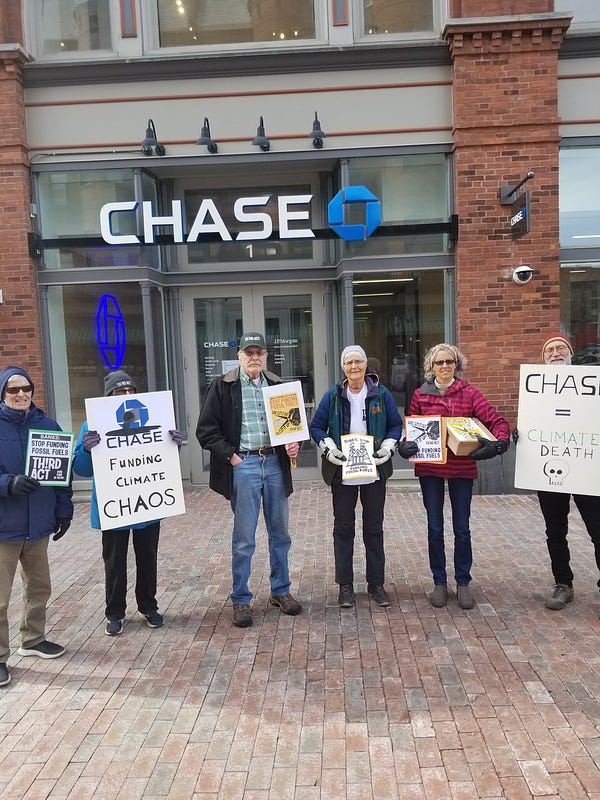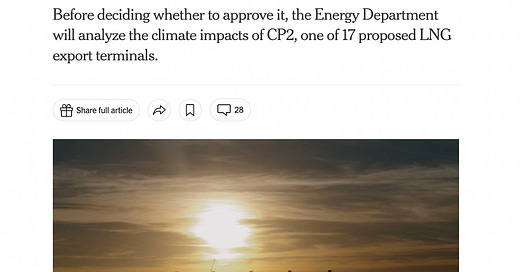
It’s been a long year since Vladimir Putin invaded Ukraine, expecting to crush the much smaller nation in days. Instead, Ukrainians have put up an epic fight, enough to summon the sympathy and support of western Europe and North America. The incredible bravery of the Ukrainians, and the equally incredible savagery of Putin’s regime—which has systematically targeted hospitals, bus depots, bike paths, and apartment blocks—are so striking that one sometimes forgets the underlying struggle: essentially, against a world in which one man gets to rule unaccountably over many others. There’s been lots of talk about Munich, but the real parallels are to Lexington and Concord: a ragtag army (with increasing help from the outside) is battling imperialism of the most naked sort. It’s been a while since the U.S. found itself on the right side of this divide, and when it doesn’t we need to protest and push. But watching Joe Biden stride through Kyiv was a reminder that there remains some useful DNA in our national makeup.
Sending more weapons dominates the discussions, but it’s worth remembering something this newsletter declared on day three of the fighting: alongside Javelin anti-tank guns and HIMARS long-range artillery, machines like the humble heat pump are key to winning, in the short term and the long. (Thanks again to all who helped win that campaign, and persuade the Biden administration within 90 days to invoke the Defense Production Act for heat pump production. When we push, we often win!)
Remember: Putin’s Russia is an oil and gas company, Exxon with tanks. Like Exxon, it’s made a lot of money this year as the price of oil shot through the roof. But like Exxon it’s prospects can be undermined if we move quickly to get off its product. For my money, Svitlana Romanko’s Razom project (it’s Ukrainian for “Together”) has been the single most useful reaction to Putin’s invasion. She’s helped push the EU to move much faster on the transition to clean energy and on defunding the fossil fuel industry; today Razom publishes a new manifesto, including these words:
The heroes of Ukraine are not fighting for a world that
stays the same. They are fighting for the future. That is
why we call for a future free from fossil fuel dictators,
where renewable energy is democratically produced
and consumed.
But of course ‘democracy’ is not a binary thing, something you either have or you don’t. Those of us lucky enough to be born in not-an-autocracy have the obligation to keep working all the time to keep our putative democracy strong. That’s the thing that’s kept running through my mind watching the sad and scary pictures from East Palestine, Ohio. I haven’t been there, but I’ve been talking to people who have, especially Rev. Lennox Yearwood of the Hip Hop Caucus, who’s been at the forefront of the fight against an expanding petrochemical industry, and whose petition is very worth signing and forwarding.
There’s also been great coverage of the ongoing trouble from Substack confreres like Brad Johnson and Emily Atkin. Atkin’s Heated newsletter had a particulary acute column this week, where she laid out the links between the fossil fuel industry and the petrochemical tankers that derailed in Ohio
This was a fossil fuel industry spill. Five of the 11 derailed cars containing hazardous materials were transporting vinyl chloride, a cancer-causing substance used to make polyvinyl chloride, or PVC, the third most-used type of plastic in the world. According to CBS News, the volatile compound is "used almost exclusively by the plastics industry”:
The problem begins at vinyl chloride's origins. It's generated from ethane, which is obtained through fracking natural gas, a process that's significantly grown since 2013 and when done, emits the greenhouse gas methane — a major driver of climate change. PVC, according to a 2020 study, has a "high potential in global warming than other plastics" due to its high energy consumption and CO2 emissions.
She’s right. Plastic is oil that can hold Diet Coke until you toss it out.
But East Palestine is also a deep reminder of what happens when you don’t take care of your democracy.
The railroad industry has spent $480 million in lobbying over the last decade—Norfolk Southern alone has tossed in $69 million. What they wanted was less regulation. And they got it. The Trump administration—open to every grasping CEO—delayed an Obama-era law that would have upgraded braking systems. Trump showing up in East Palestine with a pallet of his branded bottled water pretty much defines chutzpah.
And it’s not just lobbying. As Prem Thakker reports in The New Republic, the company has also ladled out tens of millions in campaign donations.
Some of these donations are especially consequential. Almost half the Republicans on the Senate Committee on Commerce, Science, and Transportation received money from Norfolk Southern in 2022; nearly half of the 65-member House Committee on Transportation and Infrastructure received money from the company—both Republicans and Democrats.
We don’t talk much at the moment about limiting corporate influence in our political life—with the current Supreme Court, the chance of overruling Citizens United is considerably less than nil. But it has to be one long-term project of everyone concerned with our climate, and with our political climate. Precisely the same companies that have polluted our air (and rarely has that pollution been more spectacular than the toxic cloud over Ohio) have also polluted our politics. Democracy—the rule of people—can yield to dramatic attacks like Putin’s, and to long-term subversion like Norfolk Southern’s. And it can yield to our apathy and indifference, or our willingness to listen to demagogues.
When we set up Third Act a year ago, we said our twin goals were protecting the climate and protecting democracy. Weeks like this one remind us why.
In other energy and climate news:
+You can’t make this stuff up. As Mongabay reports, France wants an exemption from environmental laws so it can clearcut a big swath of Amazon forest in order to produce biomass energy for its…spaceport.
The French government has eyed huge swaths of the department’s forests for years for its bioenergy potential — initially to burn the wood, then in using the cleared land for growing bioenergy crops on tree, soy and sugarcane plantations.
French proponents want to enable IDEX, a French construction company, to build two biomass power plants by 2024-25 to provide energy to the European Space Agency and French Space Agency in the Kourou District on French Guiana’s north coast.
Please, France: don’t trade one planet for another. It’s…Muskish.
+My fun for the week was helping deliver 17,000 pledges to Chase Bank from people promising to cut their ties with it, Citi, Wells-Fargo, and Bank of America unless they cease funding fossil fuel expansion. This is all a lead-up to the big day of action on 3/21/23, which now has 75 actions scheduled across the continent. We’re old, but so what?



If you want more motivation, check out this video from leaders in Southwest Lousiana calling out the banks for foisting yet more LNG terminals on their corner of the country
+TIAA is the investment manager for the country’s professors—including the people who first warned us about the climate crisis. But the company continues to invest their retirement funds in fossil fuels, and many of them don’t even know it, as a report from Penn makes clear.
English professor Jim English said that he signed the complaint because of TIAA’s connection to Adani Group. Adani is a conglomerate that owns Australia's recently constructed Carmichael coal mine, which could emit 78 million tons of carbon dioxide annually. According to research by Toxic Bonds, TIAA is the second-largest holder of Adani bonds in the world.
“I think that most professors — most well-educated people, at least in a city like Philadelphia — do not want to be investing their money in companies like Adani," English said.
+The fight to stop the destruction of an Atlanta forest for a police training camp—”Cop City”—continues with a week of action beginning March 4.
+Excellent reminder from Elena Shao in the NYT that just because it’s an EV you shouldn’t be buying a bigger vehicle than you actually need. (And per usual, the Times graphics department has come up with some eye-popping charts to make the point).
Heavier electric pickup trucks often require bigger batteries and more electricity to charge, so they end up being responsible for more emissions than other smaller E.V.s. Taking into consideration the life cycle emissions per mile, they end up just as polluting as some smaller gas-burning cars.
















Terrible analysis of Ukraine War. Supports war hawks and neocons who returned in force to the Biden administration, State Department, and US Congress. I am stunned by how little McKibben understands by what is actually happening and is in support of more weapons, more death, more destruction, and more profits for the weapons industry while Ukrainians pay a great price for this proxy war between NATO and Russia. Where is the call for negotiations and diplomacy to prevent the destruction of our planet from planned or accidental nuclear war? He may be Third Act's guru, but not mine. Medea Benjamin and Code Pink should give him a good spanking for this destructive analysis. He should stick to things he understands and not lead those who care about both the environment and peace down a destructive path.
I love the detail you put in to this. It's a fantastic reminder to never stop fighting for what really matters, and how the average person can make a difference.